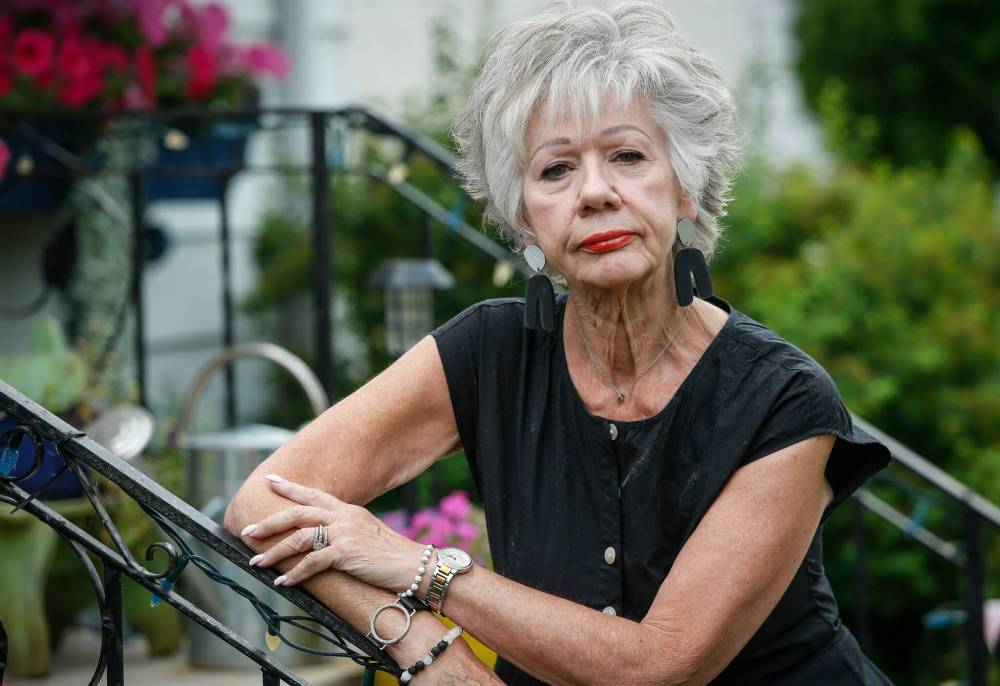Staffing levels at nursing stations in northern Manitoba First Nations won’t improve unless wages and working conditions do, the union representing federal health-care workers warns.
Nisichawayasihk Cree Nation in Nelson House, located about 800 kilometres north of Winnipeg, closed its nursing station to everything but urgent cases a year ago.
Pimicikamak Cree Nation, also known as Cross Lake, located about 500 kilometres north of Winnipeg, declared a state of emergency in March, citing a nursing shortage.

JOHN WOODS / FREE PRESS
Lynn Ohlson, president of PIPSC, the union representing 4,400 federal medical professionals, is concerned that nurse wages and work conditions are not high enough to keep nurses out of the private agencies.
Most of the 21 nursing stations serving Manitoba First Nations that are operated by Indigenous Services Canada are doing so with half the staff needed, Professional Institute of the Public Service of Canada health services president Lynn Ohlson told the Free Press.
The union represents 4,400 federally employed health staff, including more than 125 nurses who work in northern Manitoba First Nations.
Most of the nursing stations are supposed to have between four and five nurses on staff, but are instead operating with a minimum of two, Ohlson said.
“We have a huge recruitment and retention problem,” she said.
The positions require a minimum of two years experience in emergency nursing, and several advanced certificates.
To fill gaps, Ottawa is turning to private staffing agencies, which offer nurses higher wages and provide flexibility over work schedules and locations.
Ohlson fears “further privatization” if the current trend continues.
“It’s care for profit, and that’s just something that we are just ideologically against,” she said, adding the shortage is not strictly a money issue.
“Working conditions are so deplorable at the moment,” she said.
The nurses working in the isolated and under- resourced communities are always on call, even after working a full shift.
Concerns about personal safety in the communities, and the complexity of emergencies — handled, at times, by just two nurses — add to the challenges.
“One of the biggest problems that we’re facing right now… is just complete and utter burnout,” Ohlson said.
The situation has given rise to “tired and overworked” staff and communities that are “very frustrated that they’re not getting the services that they need,” she said.
“From a working point of view, it’s getting to be pretty much a crisis.”
To improve conditions, the union says nursing stations need to be better staffed. But federal wages will need to rise in order to compete with private staffing agencies.
Ohlson doesn’t know precisely how much agency nurses are being paid.
“All I know is it’s a substantial difference,” she said.
The average hourly wage for a federal northern nurse is currently $47 per hour.
In 2022, Indigenous Services Canada tripled recruitment and retention bonuses from previous levels, through to 2025.
At hiring, a full-time nurse currently receives $6,750, followed by an additional payment of $9,750 after a year of employment. A “retention allowance” of $16,500 is also paid out annually.
Ohlson said the increased financial incentives haven’t improved the situation.
“You get to the point where you can’t pay someone enough money to do something, and it’s getting close to that,” she said.
Federal nurses have been working under an expired contract since October 2022.
Ottawa and the union are currently at the negotiating table and nearing a tentative agreement.
PIPSC acting president Eva Henshaw wouldn’t divulge details Tuesday about the talks, but told the Free Press an expected tentative agreement will fall short of what’s required.
“It could easily take the government up to six (more) years to fix this gap in order to solve the problem around recruitment and retention for nurses,” Henshaw said.
jordan.snobelen@freepress.mb.ca
Jordan Snobelen
Reporter
Jordan Snobelen is a general assignment reporter for the Free Press. He spent four years reporting for community newspapers in Ontario before joining the Free Press’s city desk in 2024. Read more about Jordan.
Every piece of reporting Jordan produces is reviewed by an editing team before it is posted online or published in print — part of the Free Press‘s tradition, since 1872, of producing reliable independent journalism. Read more about Free Press’s history and mandate, and learn how our newsroom operates.
Our newsroom depends on a growing audience of readers to power our journalism. If you are not a paid reader, please consider becoming a subscriber.
Our newsroom depends on its audience of readers to power our journalism. Thank you for your support.